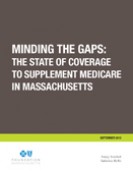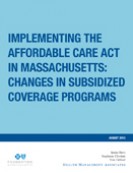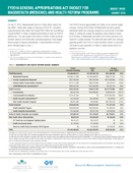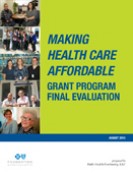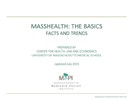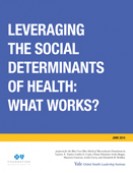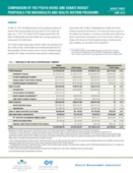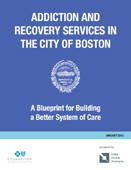MassHealth Matters II: Long-Term Services & Supports: Opportunities for MassHealth
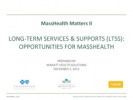
This chart pack, prepared by Manatt Health Solutions, provides an examination of the current state of long-term services and supports (LTSS), an area identified as a priority for reform by MassHealth (Massachusetts Medicaid). MassHealth accounts for nearly half of all spending on LTSS, amounting to $4.5 billion annually, and equal to 12 percent of the state budget. Using previously unpublished LTSS data, the chart pack examines MassHealth LTSS spending and utilization, access and affordability, workforce capacity and quality. It also includes a summary of opportunities to improve delivery and coordination of LTSS.
Findings from this chart pack were featured at a Foundation event held on December 2, 2015, MassHealth Matters II: Long-Term Services & Supports (LTSS): Opportunities for MassHealth.

